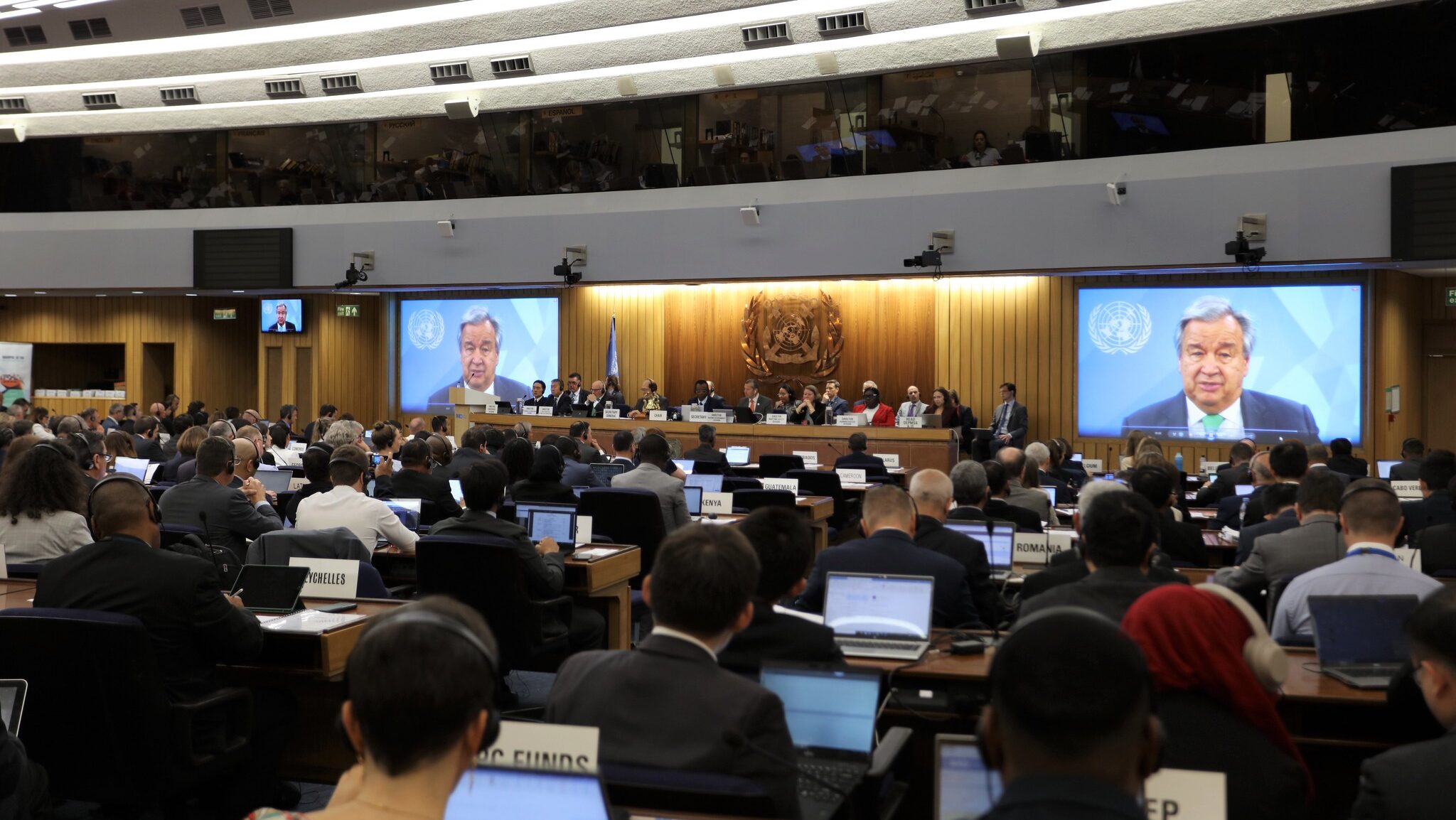(London: 7 July, 2023)
This week’s 80th Marine Environment Protection Committee (MEPC 80) marked a critical moment for determining whether the shipping industry is able to keep the Paris Agreement goal of 1.5°C alive and secure a just and equitable transition for the world’s most vulnerable countries.
Member States joined negotiations at the International Maritime Organization (IMO) headquarters in London with a view to setting out clear goals to revise its GHG Strategy.
To be a success, the revised GHG Strategy needed to include 1.5-aligned science-based emission targets for 2030 and 2040, and an agreement to phase out all GHG emissions by no later than 2050. Additionally, these targets needed to be set in a way that supports all nations, particularly those most vulnerable to climate change.
This week’s MEPC 80 follows the 15th intersessional working group on greenhouse gas emissions (ISWG-GHG 15), which took place the preceding week. Yet, despite two long weeks of discussions, the progress made was insufficient to secure a 1.5°C goal for international shipping. The IMO has reached a weak agreement on a net-zero target “close to 2050”, with no real interim targets for 2030 and 2040, and timelines for the entry into force of regulatory measures at the earliest by 2027.
Ana Laranjeira, Shipping Manager at Opportunity Green says:
“This week had everything to be a historical moment. The last chance for the IMO to align with the Paris Agreement temperature goal of 1.5°C, vital to secure a just and equitable transition for the world’s most vulnerable nations, and protect our global biodiversity, such as the world’s coral reefs which will simply cease to exist in a world above this temperature threshold. This agreement does not get us anywhere near 1.5°C.
“Nonetheless, we are grateful for the immensely hard work of the Pacific Island nations and other ambitious Member States to secure the best possible outcome in what were extremely intense rounds of negotiations. Every fraction of a degree is of crucial importance, and we need to continue to work to decarbonise international shipping in a just and equitable manner as soon as possible.”
Another big hope for these talks was the need for the timely adoption of regulatory measures, including an ambitious levy – such as the one put forward by the Marshall Islands and Solomon Islands. Not only would such a levy close the price gap between conventional and zero-emission fuels, it would also enable some of the generated revenues to support the sustainable development of climate vulnerable countries.
The World Bank has estimated that $1 trillion to $3.7 trillion could be raised from putting a price on shipping emissions by 2050. However, the revised Strategy states that the earliest such a measure could enter into force is 2027, which is too little too late to meet 1.5°C, and does little to support a just and equitable transition for climate vulnerable nations.
“One glimmer of hope was seeing 12 delegations from climate vulnerable nations who had previously struggled to attend the IMO meetings in-person due to resource limitations. This time, they were able to be present in the room thanks to donations to the Voluntary Multi-Donor Trust Fund,” says Ana Laranjeira. “However, we also learned that only two IMO Member States had contributed to the Fund – we desperately need to see an increase in donations to ensure greater participation from climate vulnerable countries. There is no fairness in the process if several countries do not get a seat at the table.”
ENDS
Notes to editors
Shipping is responsible for about 3% of global greenhouse gases and this is set to rise dramatically without significant intervention. Increasing demand for shipping services means that maritime emissions are accelerating faster than many other sectors.
Opportunity Green is an NGO working to unlock the opportunities from tackling climate change using law, economics, and policy. We do this by amplifying diverse voices, forging ambitious collaborations and using legal innovation to motivate decision makers and achieve climate justice, with particular emphasis on the aviation and shipping industries.
Since October 2022, Opportunity Green has been working bilaterally with a number of ambitious climate vulnerable IMO Member States – working collaboratively with their London Embassies and/or capitals, towards building their capacity to actively participate in these meetings, including ISWG-GHG 15. Our work with these countries includes inter alia, developing unbiased information briefings ahead of the IMO meetings, providing ad-hoc legal and policy advice, and facilitating networking opportunities.

